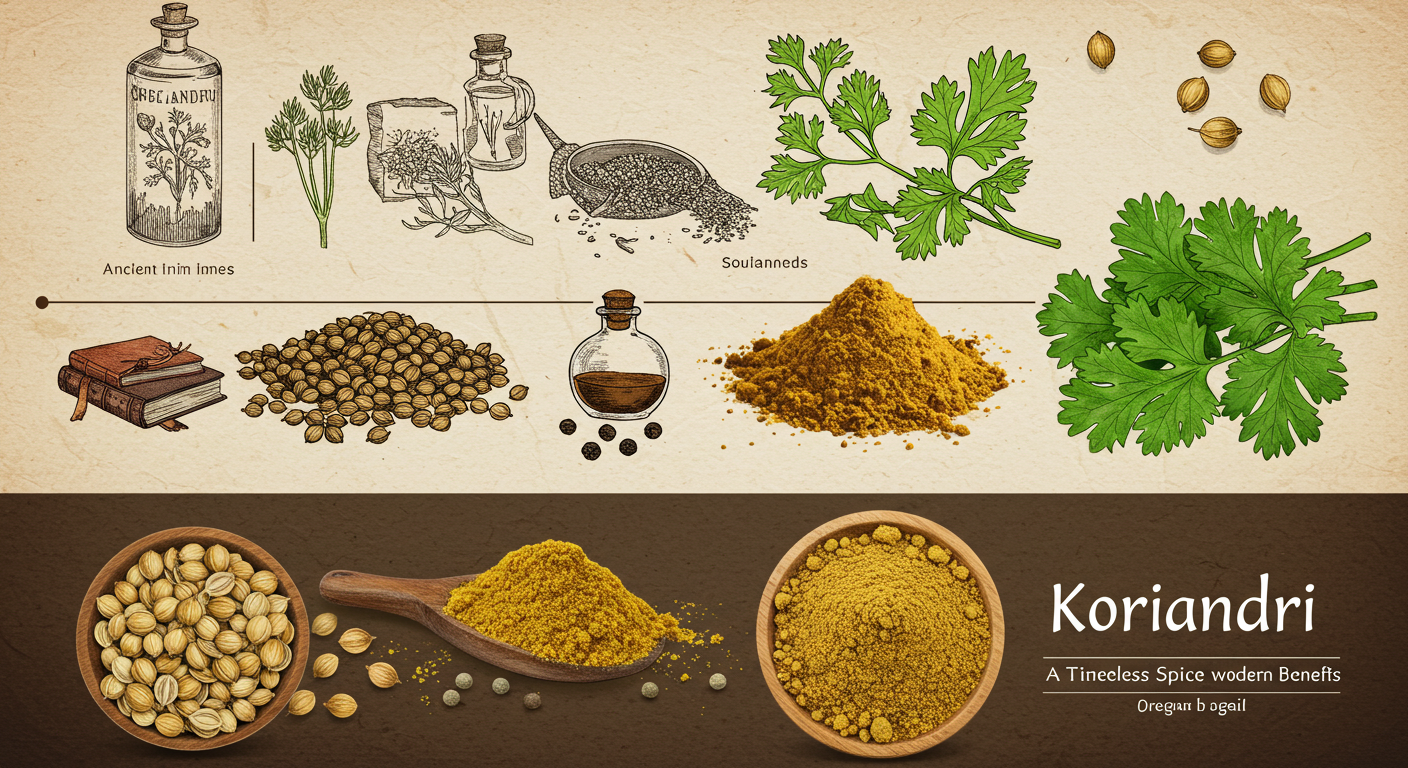Koriandri is more than just a spice sitting quietly in the kitchen pantry. For centuries, it has been valued across cultures for its aroma, taste, and healing properties. Derived from the seeds of the coriander plant holds a unique position in both culinary traditions and natural medicine. In today’s fast-paced world, where people are returning to natural ingredients is enjoying a well-deserved spotlight.
This article explores the origins of its place in history, how it is used in modern kitchens, and the health benefits that make it a timeless ingredient.
The Origins of Koriandri
The story of goes back thousands of years. Ancient texts from Greece, India, and Egypt mention its use as both a spice and a medicinal herb. In fact, koriandri seeds were discovered in the tombs of Egyptian pharaohs, highlighting its role in sacred rituals.
The spice traveled along trade routes, making its way into Middle Eastern kitchens, European recipes, and Asian remedies. Over time, koriandri became a household essential, admired not only for its flavor but also for its therapeutic qualities.
Koriandri in Global Cuisines
One of the remarkable qualities of koriandri is its versatility. In Indian curries, it provides warmth and depth. In Middle Eastern stews, it adds an earthy touch. European bakers often used it in breads and cakes for a subtle sweetness.
Common Culinary Uses of Koriandri:
-
Ground into spice blends for curries, sauces, and marinades.
-
Roasted whole and added to rice or lentils.
-
Infused in teas and herbal drinks.
-
Used in pickling vegetables for tangy flavor.
-
Sprinkled in baked goods for aromatic undertones.
Its ability to complement sweet and savory dishes alike makes koriandri indispensable in kitchens worldwide.
Nutritional Value of Koriandri
Koriandri is not only flavorful but also packed with essential nutrients. The seeds are rich in fiber, vitamins, and minerals. They contain antioxidants that help combat inflammation and support digestion.
Key Nutrients Found in Koriandri:
-
Vitamin C and Vitamin K
-
Iron and Magnesium
-
Essential oils with antimicrobial properties
-
Fiber that aids in digestion
These nutrients contribute to the growing popularity of koriandri as a natural health booster.
Health Benefits of Koriandri
Koriandri has long been used in traditional medicine systems like Ayurveda and Chinese medicine. Modern research supports many of these ancient claims.
1. Digestive Aid
Koriandri is known for improving digestion by stimulating enzyme production. A small amount after meals can reduce bloating and discomfort.
2. Heart Health
The spice may help regulate cholesterol levels by reducing LDL (bad cholesterol) and supporting healthy circulation.
3. Blood Sugar Regulation
Studies suggest that koriandri can help stabilize blood sugar, making it beneficial for those managing diabetes.
4. Anti-Inflammatory Properties
Thanks to its antioxidants, koriandri helps reduce inflammation and supports joint health.
5. Immune Support
Its antimicrobial properties protect the body against infections while strengthening overall immunity.
Koriandri in Home Remedies
For generations, families have relied on koriandri in simple home remedies. Warm koriandri tea is often used to soothe an upset stomach, while koriandri-infused water can help detoxify the body. In traditional skincare, it has even been used as a natural remedy for acne and irritation.
Sustainable Cultivation of Koriandri
As interest in organic and sustainable farming grows, koriandri fits perfectly into this movement. It requires minimal water, adapts well to different climates, and supports soil health. Farmers across Asia, Africa, and Europe continue to cultivate koriandri both for local use and international markets.
Modern Innovations with Koriandri
Today is not just confined to spice racks. It is being incorporated into supplements, herbal teas, essential oils, and even skincare products. Nutritionists recommend as a natural alternative to processed flavor enhancers, while chefs experiment with it in fusion cuisines.
How to Use Koriandri at Home
Adding to your daily routine is simple.
-
Sprinkle ground koriandri into soups, curries, or salads.
-
Brew it into tea for a refreshing digestive aid.
-
Use it in marinades for meat and vegetables.
-
Blend it into smoothies for a subtle earthy flavor.
By experimenting with small amounts, you can discover new ways to enjoy this versatile spice.
Conclusion: Why Koriandri Remains Timeless
From ancient tombs to modern kitchens has stood the test of time. Its unique flavor, impressive health benefits, and cultural significance make it more than just a spice—it is a bridge between tradition and innovation. Whether you are a food enthusiast, a health-conscious individual, or someone who loves exploring natural remedies, deserves a permanent place in your lifestyle.

